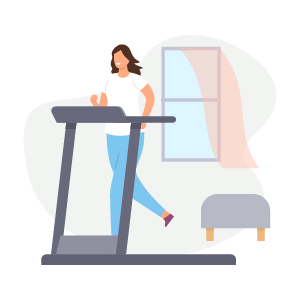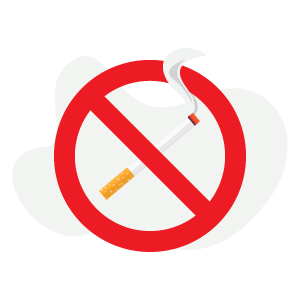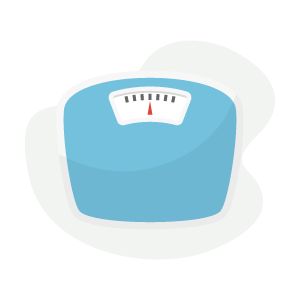Early Heart Attack Care (EHAC)
Find a Cardiologist
Pump It Up: Understanding Cardiac Metabolism
The human heart pumps an average of 2,000 gallons of blood per day.
And in 70 years, the average human heart will beat more than 2.5 billion times.
That is no small feat!
How to Fuel Your Heart
Similar to how your digestive system converts food into energy for your body, the human heart takes chemical energy and converts it into mechanical energy. This mechanical energy is responsible for fueling every beat of your heat. There's a lot of behind-the-scenes work that goes into every heartbeat.
This energy transfer is called cardiac metabolism. Cardiac metabolism’s goal is to produce enough chemical energy to transfer to mechanical energy. This mechanical energy will keep the heart running as smoothly as possible. To measure it, doctors pinpoint the levels of adenosine triphosphate (the body's primary chemical cellular energy source).
Don't Stress Your Heart Out
When your heart is healthy, your body produces enough chemical energy to fuel the mechanical energy needed to pump oxygenated blood to your entire body. This means you have sufficient cardiac metabolism.
When stressed, the heart switches from fat to carbs for energy. While this is okay occasionally, it can result in a loss of flexibility. Rather, the more stressed your heart is, the less it can adapt to stressful events again in the future. One study showed that adults with abnormal heart metabolism are up to three times more likely to experience life-threatening arrhythmias (heart rhythm).
Other conditions such as diabetes, obesity, hyperlipidemia and hypertension can also cause abnormalities in cardiac metabolism. Treating those conditions may improve cardiac metabolism and protect against heart failure.
What Can You Do To Improve Your Heart Health
While we know that measuring cardiac metabolism may be a good indicator of overall heart health and it may identify the beginning stages of heart failure, doctors are just at the beginning of researching how all-encompassing cardiac metabolism is and what treatments can improve the energy transfer needed to fuel the heart.
In the meantime, take care of your heart with our heart-healthy tips:
1. Have regular wellness exams.
a. Find a doctor you trust and get regular heart-health screenings. Be sure to raise any concerns you have about your heart health with your provider.

2. Stay active
a. Get your blood pumping a few times a week. Exercise can reduce your risk for heart disease, diabetes and obesity. It can also keep your cholesterol levels within a healthy range.

3. Don't smoke
a. Smoking can lead to heart failure. A study stated that those who smoked tobacco cigarettes developed heart failure at twice the rate of those who never smoked.

4. Be aware of your family history
a. Heart disease can run in families. Knowing your family history can help you and your provider creates a plan to prevent heart disease.

5. Watch your weight
a. Maintaining a healthy weight can keep pressure off your heart. Having an excess of fat around your heart and liver can raise cholesterol levels, increase your blood pressure and increase the risk of developing type 2 diabetes- all of which can affect your cardiac metabolism levels.

The more we know about our bodies, the more we can protect ourselves. Concepts like cardiac metabolism help us understand what we cannot see so that we can keep our bodies as healthy as possible.
It’s never too early to start caring for your heart. Don’t delay care. Schedule a heart screening with one of our trusted providers today.
Sources:
American Heart Association
CDC
Harvard Health Publishing
Frontiers
John Hopkins Bloomberg School of Public Health
National Library of Medicine
Science Daily
University of Utah

